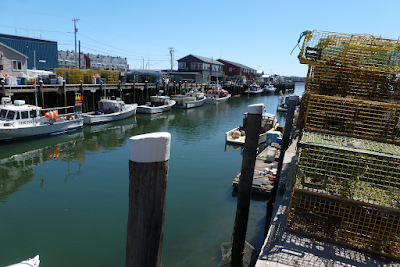 |
| Weathervane atop Portland, Maine, City Hall. |
We are venturing out a bit more, as we learn to live with the pandemic, and recently visited friends in Portland, Maine. Having enjoyed a wonderful exhibit of weathervanes at the American Folk Art Museum last year, I am now on the look-out for these special sculptures and spotted this one at City Hall, very near our hotel.
The Press Hotel, our home away from home for a night, was very comfortable and is so-named as the building was the production headquarters for the Press Herald newspaper, part of the Gannett media empire, founded by Gus P. Gannett in 1923. A quote from a plaque mounted on the exterior of the building includes a quote from Mr. Gannett:
I have never regarded the newspaper as merely a piece of private property to be conducted for mercenary ends, but rather as an institution to be managed for the public good, and to be made a force in the community, for the promotion of the welfare of our city, state, section and nation.
The dcor of the hotel references its history and includes a collection of vintage typewriters mounted in a stairwell wall, below.
The print theme continues in textiles too, including custom carpet in the hallways, and, literally, writing on the wall - actual headlines from the newspaper.
 |
| Hotel hallway, with the alphabet underfoot. |
 |
| Detail of carpet - I'd like a rug, please. |
You'll notice the headline "Weary fishermen can now get dinner at Becky's" - we weren't weary fishermen, but we nevertheless caught lunch at Becky's, a fun, busy waterfront diner.
Portland is still a working port, with many lobster fishermen.
 |
| Wharf with lobster boats and stacks of traps. |
The exteriors of some historic brick buildings still advertise the wares of former business occupants. The fading remnants of these old advertisements are called "ghost signs".
 |
| Ghost sign, Portland. |
Words and letters can show up in unusual places too. The Press Hotel continues its typesetting theme even on its vehicles and directional signage.
 |
| Interior signage directed us to our room. |
Finally, I can heartily recommend this bakery. We brought back delicious treats to eat at home.
 |
| The Standard Bakery - go early for best selection. |







